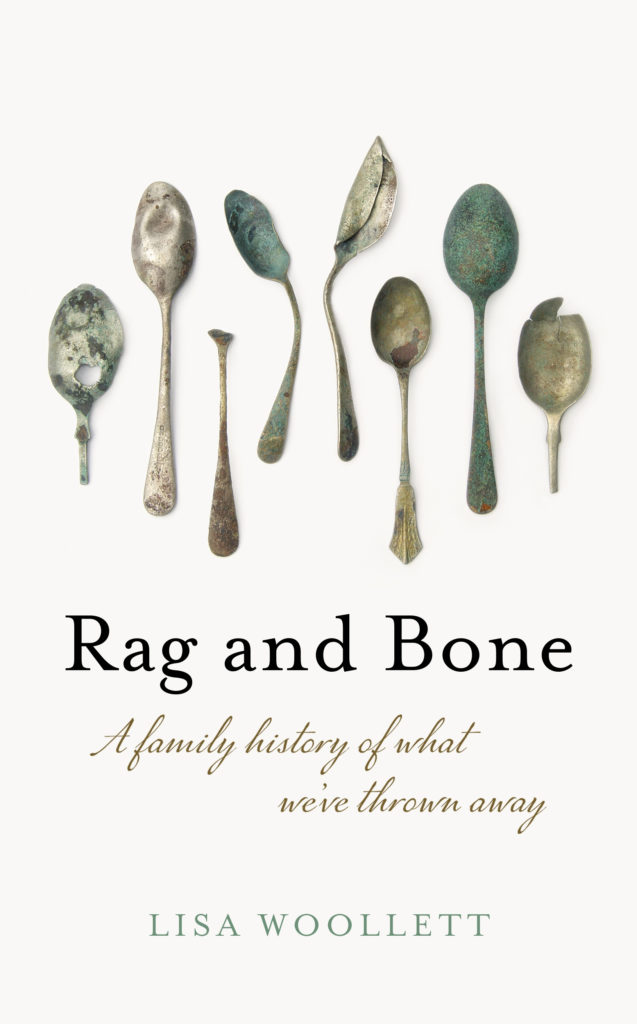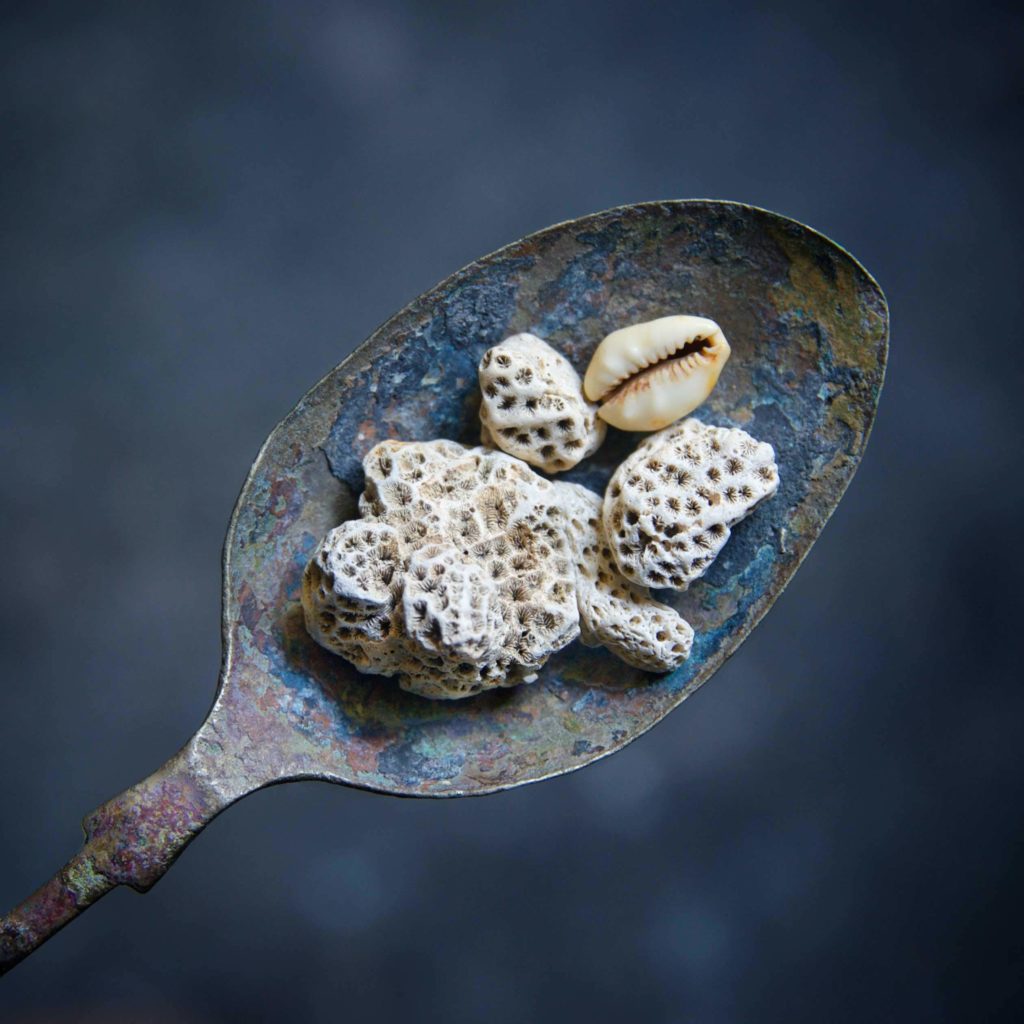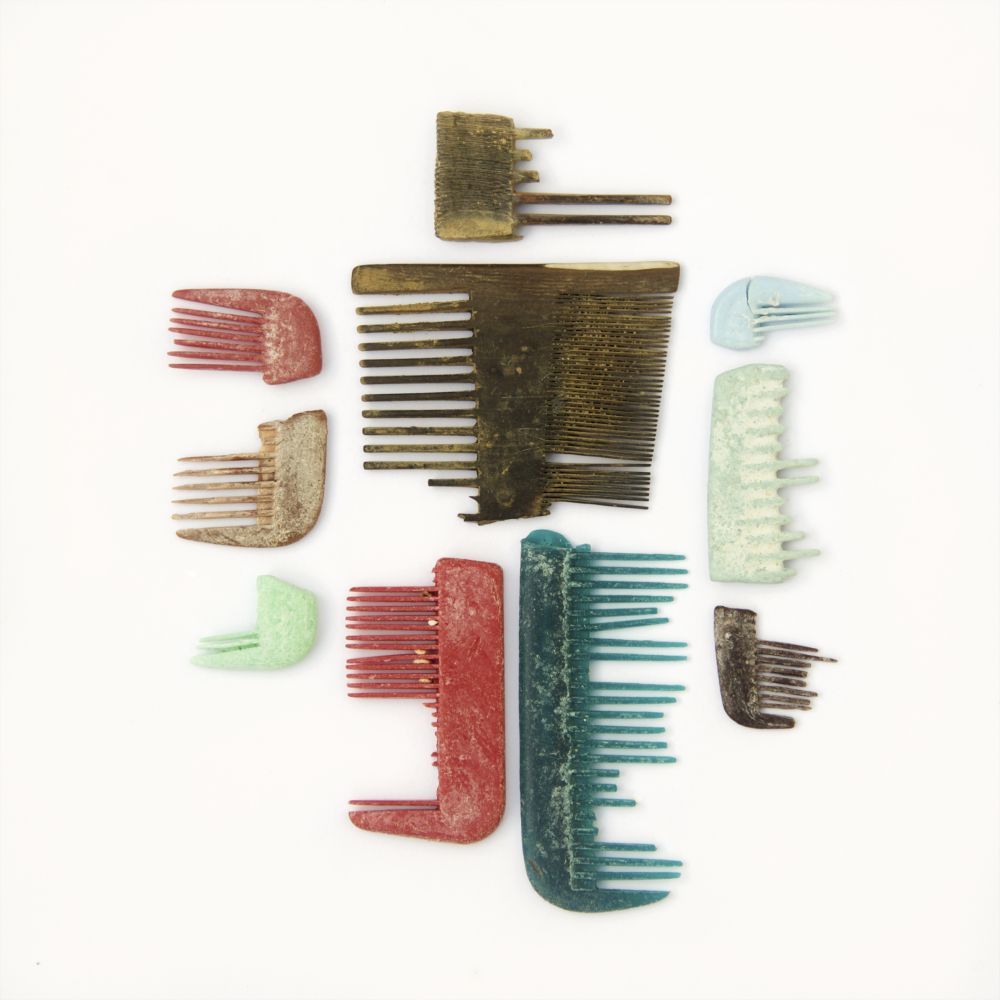Lisa Woollett’s Rag and Bone: A Family History of What We’ve Thrown Away — which traces the story of our rubbish, and, through it, our history of consumption — has just been published by John Murray, and is our July Book of the Month. Frances Castle reviews.

My own family, like many Londoners, has a connection to the working life of the Thames. On my father’s side I have watermen and lightermen, and in the 19th century the family were ship breakers, with a yard near Vauxhall Bridge that stood in the shadow of huge wooden figure heads taken from the ships they broke up. This was recycling on a large scale; the wood from the ships was made into garden furniture and reused in building materials.
Lisa Woollett weaves the story of her own London family within the wider social history of recycling, throwaway culture, and the disposal of our rubbish across the centuries.
Woollett, a long-time beachcomber, was a professional photographer in her twenties, and the book is illustrated with photographs of her finds arranged in ways that often say as much as the words do about the subject matter. A carefully placed composition of combs found in the Thames, ranging from ancient bone to modern plastic, follow a strikingly similar design across the ages. A cowrie shell and coral — neither native to the Thames — sit on a well-worn spoon, telling tales of London’s connection to slavery and sail. A tuft of dried kelp with a golf ball as its anchor sits elegantly on a white background, as does a pink sea fan with a discarded clothing label poking out of it, looking as if it has grown an artificial limb. Vast collections of sea-beaten colourful plastic toys are arranged by type; dolls’ legs, fake pants, green soldiers in various states of decay.

As she wanders the banks of the Thames picking up clay pipes, buttons, combs, china shards and even a tiny thimble (possibly used in the leather trade), Lisa Woollett ruminates on her ‘Tolladay’ relatives who were living next to the river on the 1841 census. Using her family’s lives as reference points she uncovers the history of public health in London, from rubbish removal and epidemics to Bazalgette’s sewer construction. Woollett’s grandfather was a Bermondsey-based dustman, and his father before him a scavenger, and her research into their histories and livelihoods shows that almost everything that was thrown away was reused: paper, glass and metal could be sold on to dealers; broken bricks, oyster shells and crockery was used in the building trade; even ash from the grates of fires was sold on as fertiliser. Her dustman grandfather was able to pick up ‘toot’ — a perk of the job that meant they could sell on good quality items that others had put out for the bins.
When Woollett was two her family left London and moved out to the Isle of Sheppey on the Essex coast. The middle chapters of her book explore how by the late 19th century London’s rubbish began to be shipped on barges to landfill sites around the Thames Estuary. Beachcombing with her mother, they find Victorian bottles and mid-century objects, as well as rubbish that shows damage from being chewed up by dustcarts.

After having children of her own, Woollett moved to Cornwall, and it’s here we shift from the past to the present. Beachcombing on Cornwall’s weather-beaten coast she finds herself overwhelmed by the amount of different plastic objects littered across the shores. As she so elegantly puts it, ‘[These] everyday objects reflect our modern addictions to convenience, novelty and ease, and have brought us to the point where our waste now threatens to overwhelm us. For me, the discord in finding these everyday objects so out of place on a beach can be particularly revealing, as in our own lives those same things are so familiar they’ve become invisible.’ It is startling to wonder how we could have ended up being so wasteful when previous generations were so clever at reusing their waste.
*
Rag and Bone is out now and available here, priced £20.00.